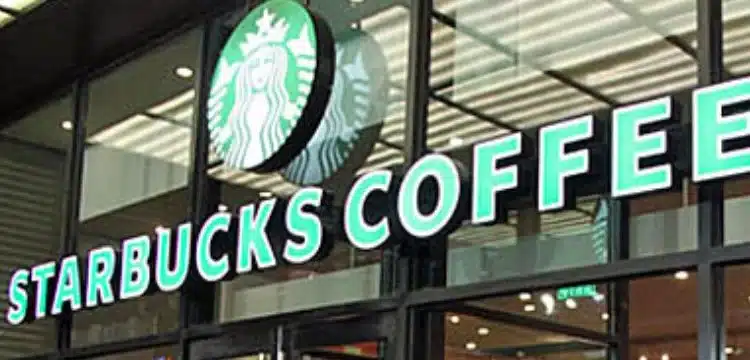[vc_row][vc_column][vc_column_text dp_text_size=”size-4″]Starbucks, a renowned coffee chain, recently faced challenges falling short of market projections. Boycotts in the United States and the Middle East are the primary reasons behind this setback.
The Middle East boycott is associated with global concerns affecting businesses. In the US, a boycott stemmed from legal actions against a union and specific social media posts. These circumstances prompted Starbucks to revise its annual income forecasts, expecting a decline in earnings. Sales in crucial markets like the US and China decelerated, contributing to this adjustment. Despite experiencing revenue growth, Starbucks failed to meet analysts’ expectations.
Read more: Starbucks Faces Loss of $11 Billion in 3 Weeks Amid Boycotts
Interestingly, Starbucks shares saw an unexpected increase, suggesting investors might be relieved that the situation wasn’t as dire as anticipated. This rise in stock value indicates the complex nature of market reactions to challenges faced by renowned brands.
This development aligns with a broader trend where well-known brands, including McDonald’s and Bud Light, have encountered customer backlash due to various controversies. Starbucks’ challenges underscore the broader impact of global and local issues on consumer sentiments and brand loyalty in the business landscape.[/vc_column_text][vc_column_text dp_text_size=”size-4″]To promote the exploration of tight gas in a technically and commercially viable manner, the Government of Pakistan has introduced the Tight Gas (Exploration & Production) Policy, 2024. The policy aims to incentivize both local and foreign Exploration and Production (E&P) companies to invest in unconventional hydrocarbons, recognizing the unique challenges associated with extracting optimum production from tight gas reservoirs. Unlike conventional wells, tight gas reservoirs require drilling multiple wells, leading to increased production costs. The policy addresses these challenges, encouraging the oil and gas industry to invest in unconventional ventures.
The extraction of value from tight gas reservoirs poses significant challenges, requiring state-of-the-art technologies and substantial investments in processes such as seismic acquisition, drilling, reservoir stimulation, and Field Development Plan (FDP). The policy acknowledges the longer recovery cycle and aims to bridge the demand-supply gap by providing a fair pricing regime compatible with market realities. The incentives of the policy apply to gas discoveries qualifying as “Tight Gas” under existing and future licenses and agreements.
Read more: Whats Causing The Gas Price Surge in Pakistan?
The pricing policy offers a 40 percent premium on the respective zonal price of the Petroleum (Exploration and Production) Policy 2012 for tight gas reserves. The incentive price is applicable to all tight gas discoveries under existing and future licenses, concessions, leases, and development and production leases. The provisional incentive price is notified once the Initial Third-Party Certification confirms the discovery as tight gas, with the final incentive price determined after the grant of Development and Production Lease.
Royalty is set at 12.5% of the value of petroleum at the field gate, and operating losses can be carried forward for up to fifteen years. Abandonment costs follow the provisions of the Finance Act 2010, and windfall levies are applicable as per the Petroleum Policy 2012. Other fiscal levies are not duplicated if both conventional and tight gases are produced from the same lease.
The policy allows for the suspension of production for up to one year, subject to technical and economic justifications, and the remittance of proceeds abroad follows the provisions of the Petroleum Policy 2012. The policy may be reviewed after five years, with specific provisions exempting the equipment and machinery used by the services sector from customs duty or other duties to incentivize the transfer of technology.
In case of disputes, the operator or the Working Interest Owner (WIO) may make representations to the Petroleum Division within 30 days from the date of the final decision by the Authority regarding the determination of tight gas under the policy.[/vc_column_text][/vc_column][/vc_row]











